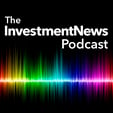
InvestmentNews' fintech reporter, Nicole Casperson, has become a true expert on all things Robinhood through her reporting, and she joins Jeff and Bruce on Robinhood's IPO day to share her findings. They discuss the companies challenges, where they go from here, and the performance of the IPO itself. Professor Luke Taylor from Wharton joins today's pod to chat about the results of his department's research on the future of ESG performance. Their verdict? The future will not be as bright as the prior two years worth of gains.
Guest interview with Luke Taylor - 0:45-21:45
Guest interview with Nicole Casperson - 22:00-42:00
Luke's research paper: Dissecting Green Returns
Related Article: Robinhood makes public debut after wild year
Related Article: Robinhood under investigation by Finra ahead of IPO
Related Article: Gensler says SEC will propose climate risk rules by year-end
Guest Bio: Lucian (Luke) Taylor is an associate professor of finance at the Wharton School at the University of Pennsylvania. He earned his AB from Princeton University and MBA and PhD in Finance from the University of Chicago Booth School of Business.
Professor Taylor’s primary areas of research are empirical corporate finance and asset management. His research focuses on two main themes: structural estimation in corporate finance, and understanding the skill of important financial actors like CEOs and active fund managers. His articles have appeared in the Journal of Finance, Journal of Financial Economics, and Review of Financial Studies, as well as nonacademic outlets such as the Wall Street Journal, CNN Money, and Forbes. His research has received the Fama-DFA Prize for best paper in the Journal of Financial Economics, Rothschild Caesarea Center Best Paper Award, Marshall Blume Prize, Jacobs Levy Prize, and the NASDAQ Award. Professor Taylor is an associate editor at the Journal of Financial Economics and Review of Finance.
Since joining Wharton, Professor Taylor has taught Venture Capital and the Finance of Innovation (FNCE 250/750) to undergraduate, MBA, and executive MBA students.
Bruce is joined this week by new InvestmentNews managing editor Emile Hallez to discuss what happens now that the election is over and we know who the next president is going to be.

Bruce is joined once again by InvestmentNews managing editor James Burton to discuss the ongoing consolidation and potential for job cuts at one of the country’s largest broker-dealer networks.

Bruce mixes it up this week and brings in InvestmentNews managing editor James Burton to discuss the story that rocked the newsroom last week – the surprise termination of LPL CEO Dan Arnold.

Bruce sits down with Vance Barse, founder and wealth strategist at Your Dedicated Fiduciary, to discuss different fee models and the passionate “hourly fee bros.”

